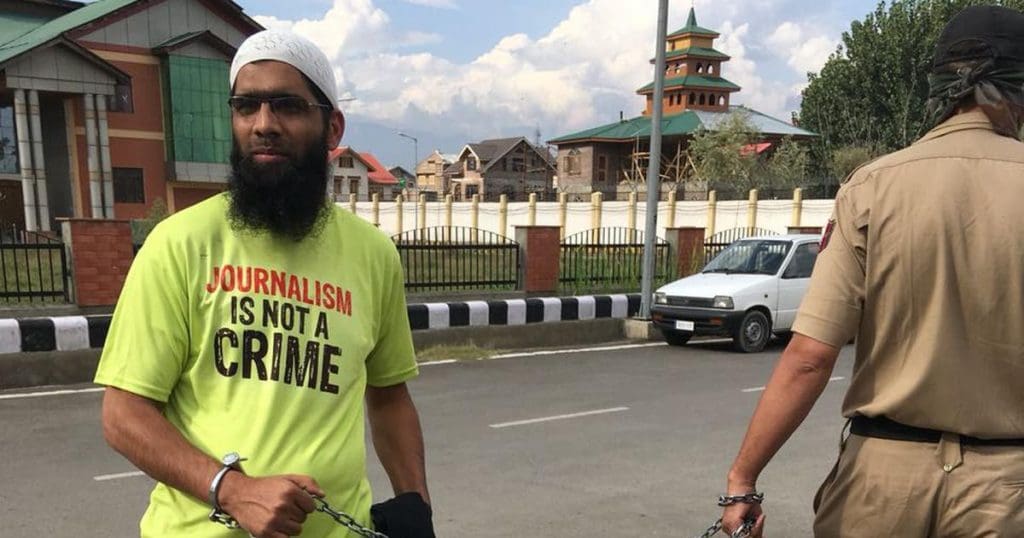
After spending five years in jail as an undertrial prisoner under draconian charges, Kashmiri journalist Asif Sultan was released only to be rearrested on Thursday evening under the draconian UAPA, in connection with a prior case of alleged unlawful activities filed by Srinagar district police.
He was arrested shortly after being brought back to his home in Srinagar from Ambedkar Nagar jail in Uttar Pradesh, where he had been detained under the Public Safety Act since 2022.
Upon his arrival in Srinagar yesterday, Adil Abdullah Pandit, his lawyer, told Maktoob that Sultan was summoned by the Rainawari police station in connection with an old case involving unlawful activities.
“It pertains to a rioting incident that was already registered in 2019 at the Rainawari police station. He has been named in this particular case,” Pandit said. “He has been formally arrested at the police station.”
Furthermore, Pandit added, “Yesterday, he was detained by the relevant authorities at the police station, and now his remand has been extended for up to five days.”
Pandit said that Sultan has been apprehended under Section 13 (Inciting unlawful activity) of the Unlawful Activities (Prevention) Act (UAPA), a stringent anti-terror law, as well as under sections 147 (Punishment for rioting), 148 (Rioting, armed with a deadly weapon), 149 (Unlawful assembly), 336 (Endangering life or personal safety of others), and 307 (Attempt to murder) of the Indian Penal Code (IPC).
He further added: “We will take legal recourse as of a date not decided.”
In 2018, the journalist was detained from his home and arrested a few days later. Police filed a chargesheet against him in February 2019, accusing him of “sheltering militants”.
Despite receiving bail from a Srinagar court on April 5, 2022, authorities invoked the Public Safety Act (PSA) against Sultan, accusing him of participating in militant activities and being an “over-ground worker.”
In December 2023, the Jammu and Kashmir High Court’s decision to quash Sultan’s detention under the Public Safety Act (PSA) was a ray of hope for his family and supporters. Yet, his release was delayed due to “procedural issues.”
A month prior to his arrest, Sultan wrote a cover story for the Kashmir Narrator magazine about Burhan Wani, a prominent militant commander. Wani’s killing by government forces in 2016 sparked a significant uprising in Kashmir that endured for several months.
As per Sultan’s editor, Showkat Motta, the police had pressured Sultan to disclose his sources for the article, which included conversations with non-combatant members of Wani’s militant group, Hizbul Mujahideen.
Sultan has received several awards for his work from various journalistic organizations across the world. In 2019, TIME Magazine recognized him as one of the “10 Most Urgent” cases, highlighting threats to press freedom globally.
Sultan’s case is not an isolated incident but rather a symptom of a broader crackdown on freedom of expression in the region. Over the past few years, several journalists have been summoned, harassed and arrested.
In 2022, Fahad Shah, editor-in-chief of Kashmir Walla, a local magazine previously banned by the government for its reporting, was arrested and released after spending 658 days in jail. Months before Shah’s arrest, Sajad Gul, a trainee reporter for Kashmir Walla, was also arrested, for posting a video clip on his social media handle about a protest in Kashmir. Similarly, in 2017, the National Investigative Agency (NIA) arrested photojournalist Kamran Yusuf, alleging his involvement in organizing stone-throwing incidents against government forces. Yusuf was later released on bail in March 2018.



